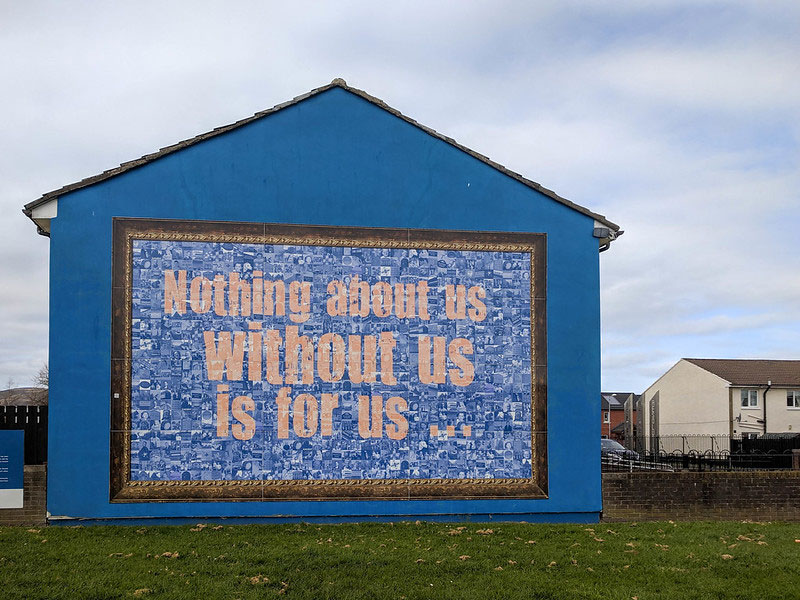Editors’ Note: The Nonprofit Quarterly is seeking a network-savvy social-justice entrepreneur for the following project. This person will receive the domain name VultureList.org and assistance with startup; responses will be held in confidence.
TO: An angel investor
FROM: Jon Pratt
RE: VultureList.org, a charity exploitation prevention project
SUMMARY: Seeking $550,000 to $750,000 for startup and five-year operating costs for operation of an innovative Web service, www.vulturelist.org, to reduce economic predation by tracking anti-social individuals—that is “vulture donors”—who have increased personal net worth by $10 million or more by decreasing the net assets of 10,000 or more low-income persons.
VultureList.org will serve as a disincentive for future exploitive economic practices by vulture donors by making their actions a matter of public record and thereby preventing charitable organizations from unwittingly being used as public foils to cleanse or burnish the reputations of these donors.
Problem Statement
Predatory businesses that exploit vulnerable low-wage workers for unnecessarily high-cost credit, mortgages, and other services contribute significantly to global poverty. A key element that perpetuates these business practices is the knowledge that, at any time, the perpetrators can cleanse their records with a nonprofit “halo” by donating funds to a willing charity. VultureList.org seeks to end that practice.
The VultureList borrows its name from “vulture funds,” which the International Monetary Fund defines as companies that buy up poor nations’ debt cheaply when it is about to be written off and then sue for the full value of the debt plus interest, which can be 10 times the amount a company paid for the debt. While technically legal, these businesses use reprehensible business practices that take advantage of unsophisticated and vulnerable communities, levying punitive and disadvantageous terms to which more sophisticated consumers would never agree.
The following are some prospects for nomination to the list:
• Michael Sheehan, founder of Debt Advisory International, sued the nation of Zambia for $40 million for an about-to-be-forgiven old debt to Romania, which was snapped up for $3.5 million. “Profiteering doesn’t get any more cynical than this,” Caroline Pearce of the Jubilee Debt campaign told the BBC’s Newsnight. “Zambia has been planning to spend the money released from debt cancellation on much-needed nurses, teachers, and infrastructure: this is what debt cancellation is intended for—not to line the pockets of businessmen based in rich countries.”1
• Paul Singer stung the nation of Peru for $58 million for a debt he bought for $11 million. Now his company, Elliot Associates, is suing Congo-Brazzaville for $400 million for a debt bought for $10 million.2
• James Devoe, Jr., CEO of J.D. Byrider, the largest American used-car franchise, locates its 130 dealerships in low-income neighborhoods, selling and financing 700,000 vehicles to the working poor at interest rates of between 18 percent and 25 percent.3
• CompuCredit founder David G. Hanna built a fortune marketing 28 percent interest MasterCards to low-income consumers.4
• Sallie Mae CEO Al Lord used a $72-billion mountain of student debt, federal subsidies, and a high-pressure referral network to build an enormous personal fortune. By 2006 he even had plans to construct his own golf course.5 We refer to the founders, owners, and partners of predatory businesses as “vultures” because of this kind of exploitative behavior. Until the launching of VultureList.org, lack of public knowledge or media follow-up on these companies’ practices meant that an individual company’s harmful behavior was never systematically connected to the injuries it has caused. Lack of public attention has helped fuel a permissive atmosphere that condones these actions.
While close-knit communities would reject predatory businesses as falling outside the bounds of good behavior, complex ownership structures and globalization have made business responsibility increasingly diffuse and subject to personal judgment alone. Unlike environmental harms that are frequently tracked to their source and where remediation can be sought, economic harm is too often attributed to the vagaries of the marketplace or to the poor decision making of those who should “know better,” even when exploitive actions and actors can be identified. This is particularly true in the case of business methods that target low-income markets.
Vulture business owners sometimes use charitable organizations to excuse exploitive business practices. These donations seemingly prove the compassion and public spirit of the donor, independent of the source of the funds. Objections about the use of “charity” for absolution has a long history, going back to Martin Luther’s protest of the sale of indulgences (forgiveness of temporal sin) by Pope Leo X. Luther rejected the need for intermediaries to speak to God and attacked the dictum attributed to Johann Tetzel that “as soon as the coin in the coffer rings, the soul from purgatory springs.”6
Charities and universities commonly seek to protect their liability and their reputation through the use of gift-acceptance policies: that is, use of internal rules designed to ensure that the source and conditions of contributions are in the best interests of the institution. But charitable institutions often lack knowledge about the hundreds of thousands of giving businesses, which puts charitable organizations at a disadvantage in vetting contributions. And regrettably, some organizations accept contributions from virtually any source, necessitating the exposure of their ties to vulture donors. Hence the need for VultureList.org.
The effort to systematically assemble data on community members has its roots in the early history of American philanthropy, when organizations recognized that—in order to direct resources where they were most needed—they sometimes also needed to track donor worthiness. In 1870 the New York Society for the Prevention of Pauperism created a list to reduce indiscriminate giving to the poor, which business leaders believed only encouraged idleness and deceit.7 In Minnesota, community leaders created the Central Registration Bureau, and by 1895, General Secretary James Jackson reported that the bureau had more than 7,700 names listed. “We feel warranted in saying,” Jackson wrote, “that there are few cities in the country where the individual condition of the unfortunate, the shiftless or the fraudulent is so well known as in St. Paul.”
Implementation
Sign up for our free newsletters
Subscribe to NPQ's newsletters to have our top stories delivered directly to your inbox.
By signing up, you agree to our privacy policy and terms of use, and to receive messages from NPQ and our partners.
VultureList.org involves a rigorous process of nomination and fact checking, reviewed by a nominations committee devoted to fairness and accuracy. Members of the public can submit names that meet the list’s criteria for inclusion, which must be substantiated with publicly available information from verified public records or reliable media reports.
VultureList.org will maintain an online searchable database and a mapping system to identify and publicize any charitable contributions, board memberships and charitable activities of vulture donors, which will help prevent charitable organizations and their volunteers from becoming entangled with vulture donors. VultureList.org creates a real-time feedback loop so that nonprofits have advance knowledge before they risk legitimizing these poor business practices.
VultureList.org will encourage donors to think twice before donating to any organization that accepts funds, publicity, or volunteer labor from “vultures” until the vulture donor makes restitution to its victims. Using the principle of denying criminals profit from their crimes, VultureList.org seeks to prevent charitable halo effects from its targets.
Consider this example. Bob Cole and Ed Gotschall, founders of New Century Financial, the now-bankrupt and second largest U.S. pioneer of the subprime mortgage market, left 7,000 employees jobless and facilitated the movement of hundreds of thousands of low-income homeowners into mortgages they couldn’t afford and sometimes lost to foreclosure.8 Cole and Gotschall left the firm and sold most of their stock six months before its collapse.
When the Orange County Register asked Cole and Gotschall, “What are you doing these days?” they responded that they “are very involved in philanthropy and are focused on giving back to the community,” publicly promoting their contributions to the Christopher Reeve Paralysis Foundation, the Children’s Hospital of Orange County, the Ocean Institute, the Boys & Girls Club of Laguna Beach, the Orange County Council of the Boy Scouts of America, the Outdoor Education Center in Irvine, South Coast Repertory, and Santa Margarita Catholic High School.9
VultureList.org will not permanently list individuals such as Cole and Gotschall. But when those who gain great wealth leave destruction and misery in their wake, it is inappropriate for them to become overnight philanthropists. In the spirit of the eighth step in Alcoholics Anonymous’s 12-Step Program (i.e., “Make a list of all persons we have harmed, and be willing to make amends to them all”), when donors on VultureList.org make restitution, their information will be moved to a sister Web site, AngelList.org.
Reinforcing Virtue
With its millions of relationships, this fragmented yet networked modern age requires checks and balances to communicate the difference between acceptable and unacceptable behavior. Accountability mechanisms work best when they are widely understood, and this is the ethic of VultureList.org.
Since it’s not costly to maintain the site, the principal expense of launching VultureList.org will be to educate the public and charitable organizations about its existence and purpose.
Clearly no charitable organization would intentionally whitewash the image of those who have their fortunes from predatory business practices. As the subjects of VultureList.org become widely known and cited in the media and on the Web, charitable organizations will be discouraged from accepting philanthropy from vulture donors and protected from potentially adverse public reaction. In the unlikely event that an organization accepts vulture donor contributions after that person’s public listing on VultureList.org, the recipient organization will automatically be nominated for inclusion on a third Web site, VultureCharity.org.
Endnotes
1. Meirion Jones, “‘‘Vulture Funds’ Threat to Developing World,” BBC Newsnight, February 14, 2007.
2. Ibid.
3. Brian Grow and Keith Epstein, “The Poverty Business,” BusinessWeek, May 21, 2007.
4. Ibid.
5. Lesley Stahl, “Sallie Mae’s Success Too Costly?” 60 Minutes, May 7, 2006.
6. Roland Bainton, Here I Stand: A Life of Martin Luther.
7. Mark Haidet, A Legacy of Leadership and Service (St. Paul: Family Service of Greater St Paul, 1984).
8. John Gittelsohn and Matthew Padilla, “New Century Lets 2,000 Go,” the Orange County Register, May 4, 2007.
9. John Gittelsohn and Matthew Padilla, “New Century Founders Speak Out,” the Orange County Register, April 30, 2007.
Jon Pratt is an NPQ contributing editor.












